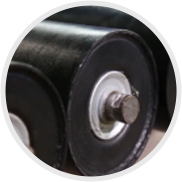 Afrikaans
Afrikaans  Albanian
Albanian  Amharic
Amharic  Arabic
Arabic  Armenian
Armenian  Azerbaijani
Azerbaijani  Basque
Basque  Belarusian
Belarusian  Bengali
Bengali  Bosnian
Bosnian  Bulgarian
Bulgarian  Catalan
Catalan  Cebuano
Cebuano  Corsican
Corsican  Croatian
Croatian  Czech
Czech  Danish
Danish  Dutch
Dutch  English
English  Esperanto
Esperanto  Estonian
Estonian  Finnish
Finnish  French
French  Frisian
Frisian  Galician
Galician  Georgian
Georgian  German
German  Greek
Greek  Gujarati
Gujarati  Haitian Creole
Haitian Creole  hausa
hausa  hawaiian
hawaiian  Hebrew
Hebrew  Hindi
Hindi  Miao
Miao  Hungarian
Hungarian  Icelandic
Icelandic  igbo
igbo  Indonesian
Indonesian  irish
irish  Italian
Italian  Japanese
Japanese  Javanese
Javanese  Kannada
Kannada  kazakh
kazakh  Khmer
Khmer  Rwandese
Rwandese  Korean
Korean  Kurdish
Kurdish  Kyrgyz
Kyrgyz  Lao
Lao  Latin
Latin  Latvian
Latvian  Lithuanian
Lithuanian  Luxembourgish
Luxembourgish  Macedonian
Macedonian  Malgashi
Malgashi  Malay
Malay  Malayalam
Malayalam  Maltese
Maltese  Maori
Maori  Marathi
Marathi  Mongolian
Mongolian  Myanmar
Myanmar  Nepali
Nepali  Norwegian
Norwegian  Norwegian
Norwegian  Occitan
Occitan  Pashto
Pashto  Persian
Persian  Polish
Polish  Portuguese
Portuguese  Punjabi
Punjabi  Romanian
Romanian  Russian
Russian  Samoan
Samoan  Scottish Gaelic
Scottish Gaelic  Serbian
Serbian  Sesotho
Sesotho  Shona
Shona  Sindhi
Sindhi  Sinhala
Sinhala  Slovak
Slovak  Slovenian
Slovenian  Somali
Somali  Spanish
Spanish  Sundanese
Sundanese  Swahili
Swahili  Swedish
Swedish  Tagalog
Tagalog  Tajik
Tajik  Tamil
Tamil  Tatar
Tatar  Telugu
Telugu  Thai
Thai  Turkish
Turkish  Turkmen
Turkmen  Ukrainian
Ukrainian  Urdu
Urdu  Uighur
Uighur  Uzbek
Uzbek  Vietnamese
Vietnamese  Welsh
Welsh  Bantu
Bantu  Yiddish
Yiddish  Yoruba
Yoruba  Zulu
Zulu Understanding the Functionality and Benefits of Conveyor Impact Bars in Material Handling
The Importance of Conveyor Impact Bars in Material Handling Systems
In modern industrial environments, the efficient and safe movement of materials is paramount. One essential component that plays a crucial role in ensuring this efficiency is the conveyor impact bar. These bars are specially designed to mitigate the impact of materials as they are transported on conveyor belts, safeguarding both the conveyor system and the material being moved.
Conveyor impact bars are typically installed at the load zones of conveyor systems, where the materials first make contact with the belt. When materials, especially bulk items such as gravel, coal, or metal parts, fall onto the conveyor, they can generate significant shock and stress on the system. Without proper protection, this impact can lead to rapid wear and tear on the conveyor belt and other components, resulting in costly maintenance and downtime.
Made from durable materials, conveyor impact bars are designed to absorb the shock energy from falling materials. Their construction often involves high-density polyurethane or rubber, which provides excellent cushioning and impact resistance. In addition, many impact bars come equipped with a rigid backing plate that enhances their structural integrity, ensuring they remain effective over time.
conveyor impact bars

One of the key benefits of using conveyor impact bars is their ability to extend the lifespan of conveyor belts
. By dissipating impact forces, these bars prevent excessive wear and reduce the likelihood of belt damage. This not only lowers repair and replacement costs but also minimizes operational disruptions, allowing businesses to maintain productivity and efficiency.Moreover, impact bars can contribute to improved safety in the workplace. By reducing the chances of belt failure due to excessive wear, they help prevent accidents that might occur from unexpected equipment malfunctions. A well-maintained conveyor system with effective impact bars contributes to a safer work environment, protecting both employees and goods.
When selecting conveyor impact bars, it's essential to consider the specific needs of the operation. Factors such as the type of material being transported, the height from which it is dropped, and the speed of the conveyor can all influence the choice of impact bar. Additionally, ensuring the correct installation and alignment of these bars is critical for maximizing their effectiveness.
In conclusion, conveyor impact bars are a vital component in material handling systems. They provide necessary protection against the damaging effects of material impact, thus prolonging the life of conveyor belts and enhancing safety. Businesses that invest in high-quality impact bars will not only save on maintenance costs but also create a more efficient and secure operational environment. As industries continue to evolve, the importance of such protective measures in conveyor systems will undoubtedly remain a priority.
-
Revolutionizing Conveyor Reliability with Advanced Rubber Lagging PulleysNewsJul.22,2025
-
Powering Precision and Durability with Expert Manufacturers of Conveyor ComponentsNewsJul.22,2025
-
Optimizing Conveyor Systems with Advanced Conveyor AccessoriesNewsJul.22,2025
-
Maximize Conveyor Efficiency with Quality Conveyor Idler PulleysNewsJul.22,2025
-
Future-Proof Your Conveyor System with High-Performance Polyurethane RollerNewsJul.22,2025
-
Driving Efficiency Forward with Quality Idlers and RollersNewsJul.22,2025





























